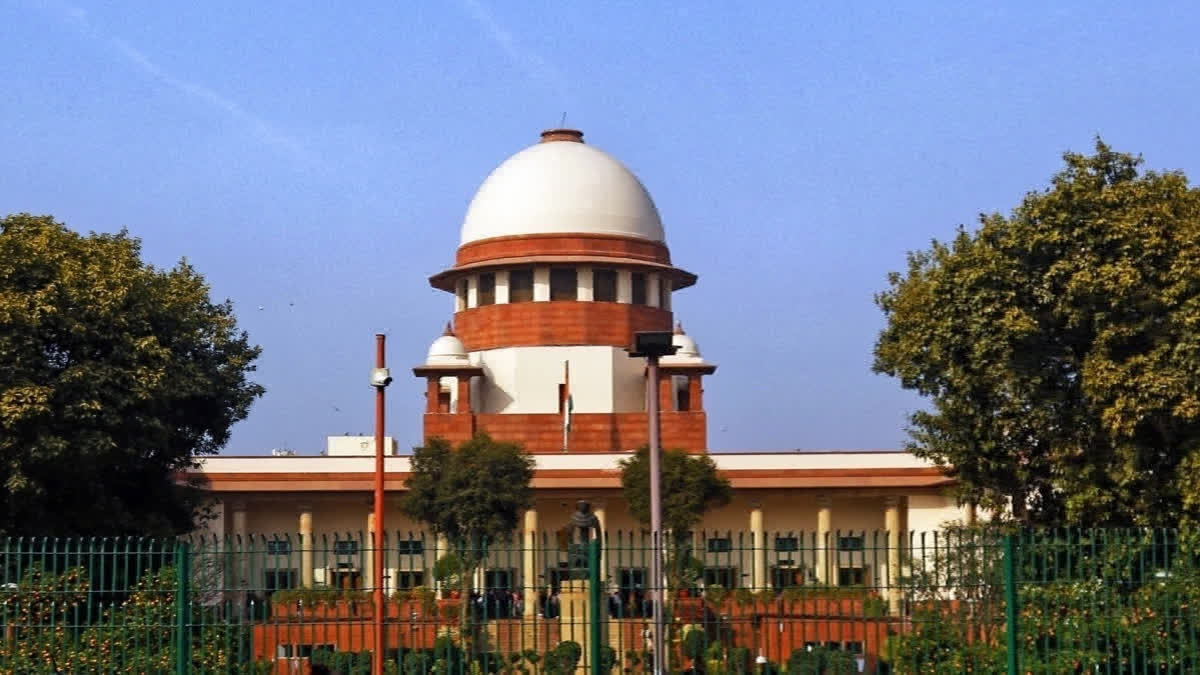New Delhi:The Supreme Court has said that a statement recorded before a magistrate cannot be discarded at the drop of a hat, on a mere statement of the witness that it was not recorded correctly while upholding the conviction of a man and his mother in the murder of his pregnant wife in 2003.
The apex court rejected the retraction of the two sisters of the accused from versions recorded by a judicial magistrate.
A bench comprising Justices Bela M Trivedi and Satish Chandra Sharma said to permit retraction by a witness from a signed statement recorded before the magistrate on flimsy grounds or on mere assertions would effectively negate the difference between a statement recorded by the police officer and that recorded by the judicial magistrate.
The bench said, in the present matter, there is no reasonable ground to reject the statements recorded under Section 164 CrPC and reliance has correctly been placed upon the said statements by the courts below.
"We deem it fit to observe that a statement under Section 164 CrPC cannot be discarded at the drop of a hat and on a mere statement of the witness that it was not recorded correctly," said the bench, in a judgment delivered on November 25.
The bench said for a judicial satisfaction of the magistrate, to the effect that the statement being recorded is the correct version of the facts stated by the witness, forms part of every such statement and a higher burden must be placed upon the witness to retract from the same.
The bench confirmed the concurrent findings recorded by the trial court and the Uttarakhand High Court, which dismissed the appeal filed by Vijaya Singh and his mother in the case where his wife succumbed to 100% burn injuries.
The bench said the circumstantial evidence available on record appeared to be consistent and did not leave much scope for the innocence of the appellants.
"The circumstances overwhelmingly point in the direction of guilt of the appellants and the cumulative effect of the circumstances has been analyzed correctly by the courts below. An alternate possibility is not in sight," said the bench.
The bench said the evidence of the doctor also states that it was not possible for the body to sustain 100% burns in the case of suicide or self-immolation and this opinion finds support from other evidence on record.
"Therefore, this opinion has been appreciated by the High Court and Trial Court in the correct context," it said.
The appellants claimed that statements of sisters of the man recorded under Section 164 CrPC are liable to be rejected as these statements were recorded in the presence of the investigating officer under threat, and could not be considered as voluntary statements.
However, the bench noted the sisters' statements were recorded by the judicial magistrate, 25 days after the incident and could not be termed as hasty statements as there was sufficient cooling period for the witnesses to think over and contemplate the consequences of their statements.
In April 2002, Devaki got married to Vijaya Singh. More than a year after the wedding, on the fateful day of September 14, 2003, Devaki died an unnatural death at the house of her in-laws.
The apex court said the statement under Section 164 CrPC must always be considered on a better footing.
"The weight to be attached to such a statement (reliability thereof) is to be determined by the court on a case-to-case basis and the same would depend to some extent upon whether the witness has remained true to the statement or has resiled from it, but it would not be a conclusive factor," said the bench.
The appellants’ claimed that the incident was a result of suicide due to the deceased’s frustration over her inability to accompany her husband to Chandigarh, where he used to work. Not convinced with this contention, the bench pointed out that the deceased was pregnant and she could not have taken a drastic step of suicide, and also difficult to believe that the deceased managed to procure two cans of kerosene (5 litres each) on her own for committing suicide within two hours.
